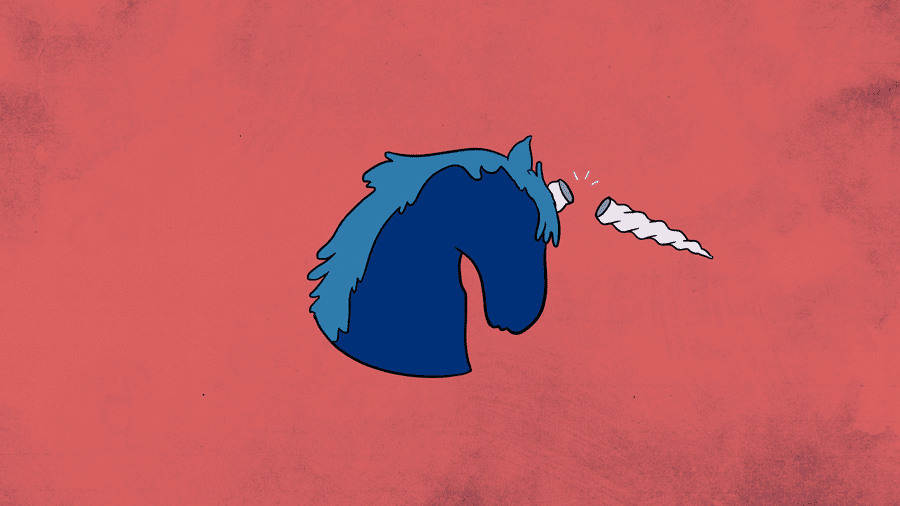Morning Markets: Next year’s unicorn IPOs are accelerating. That’s not surprising.
Many famous technology unicorns—growth companies valued at over $1 billion—that have remained private longer than historical norms are looking to go public next year. Their calendar, however, just shrank.
According to JP Morgan, and reported by CNBC, 2019 and 2020-planned unicorn IPOs are compressing their timelines to get out while the getting is good, or, perhaps, while there is still getting to be got.
Here’s the key quote:
[T]he sharp decline in stocks this month has investment bankers feverishly working to help companies file earlier in 2019 on the risk that markets get even less accommodating later in the year [according to Jennifer Nason, the JP Morgan global chairman of investment banking].
“Anyone thinking they had plans to go public in 2019 is accelerating those plans,” she said in an interview. “The first half of 2019 could be a lot better than the second half of 2019 or 2020.[“]
This shouldn’t be a surprise.
The noted share price declines and the expected set of unicorn IPOs have been a key conversation point among techies in recent months.
Here’s how the two trends interact. Many private tech companies have incubated in favorable weather. Their growing period was long, fed by endless, cheap capital, and powered by a long economic expansion coupled with a strong stock market. Those factors allowed the unicorns, and their larger, more valuable decacorn siblings, to grow to huge sizes in terms of worth and scale.
But even the largest company needs to provide liquidity to its investors at some point, and many unicorns couldn’t get themselves to pull the trigger on an IPO—they didn’t have to. After all, why not raise another stack of private capital, grow for another year, push profitability out even further to the future, and not answer to shareholders?
The model arguably worked better and better as time went along. The venture capital market has focused more on larger checks to fewer companies in recent quarters, a trend that we can see in the rise of supergiant ($100 million or larger) rounds, and the incredible run that the Chinese startup scene has itself seen in recent years. So, up to the end, there was more and more capital available in potentially larger helpings for our unicorn crop of companies struck heavily with what we call Peter Pan syndrome in San Francisco.
But larger checks mean larger valuations, which puts extra pressure on the companies in question regarding their eventual liquidity. The more value you have locked up in your firm, the more that your eventual exit matters. And the larger you become, the less likely it is that some external company will snap you up; you’re going to have to go public.
That was not a scary thought until recently, as the public markets just kept going up. Amazon hit a trillion after Apple hit the mark, and things looked hot. Fear was still on layaway, and the good times were still good.
Fear
Until they weren’t, and fear’s profile rose.
With major indices in correction and threatening a bear market, unicorns that still need to go public while things are good are crunched for time. If, say, Uber waits too long to go public, it may debut at a time when public investors have parked miles away from its private valuation, forcing the company to go public at a discount to its prior valuation.
Run that math a few times across different IPOs and you’re cutting a chunk of flesh from industry investors, founders, and employees. Companies don’t want that to happen as it would break an implied commitment to their employees who took a portion of their compensation in stock; no one wants a pay cut. Employers especially don’t want to hand them out in a labor market as tight at tech’s own.
So we’re seeing stocks fall and IPOs accelerate in hopes of getting out before things get worse, perhaps protecting valuations in the process.
But we’ve actually already seen what happens when the public markets check the private markets’ homework and find computational errors. Blue Apron was torn apart by the stock market; Snap is heading in the same direction; and Dropbox, a unicorn-era darling, is trading beneath its IPO price and is worth billions less than its 2014-sourced private valuation.
But if you are a company looking to get out regardless, probably sooner is better than later as you can control more in the short-term than you can looking further out.
And that’s why the unicorn IPO traffic jam we’ve written about for years could turn from an orderly queue in 2019 and 2020 into something more akin to a stampede next year. Get ready.
Top Image Credit: Li-Anne Dias.

Stay up to date with recent funding rounds, acquisitions, and more with the Crunchbase Daily.






![Illustration of a guy watering plants with a blocked hose - Global [Dom Guzman]](https://news.crunchbase.com/wp-content/uploads/quarterly-global-3-300x168.jpg)
67.1K Followers